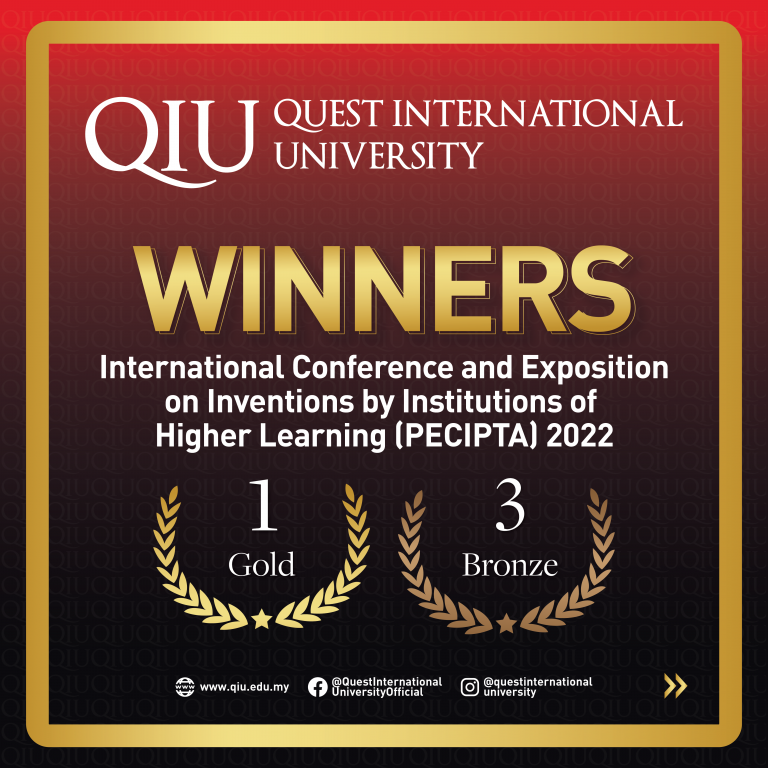Once again, QIU’s academics were challenged to stand out among over 400 inventors from the region’s top public and private universities. Once again, they shone.
This time, the accolades came from The International Conference and Exposition on Inventions by Institutions of Higher Learning (PECIPTA) 2022, where our academics won one gold and three bronze medals!
Hosted by Universiti Malaysia Kelantan, PECIPTA is a biannual program organised by Malaysia’s Ministry of Higher Education, with the aim of enhancing networking and collaboration among participants, industries, agencies and other potential players to further explore, improvise and ensure the technologies developed can be transferred to industries and communities.
And against a field of nearly 500 participants from institutions like Universiti Malaya, Universiti Sains Malaysia, Universiti Putra Malaysia, Universiti Malaysia Sabah, Multimedia University and UCSI, our champs excelled with some fascinating inventions.
The medal haul was led by the Faculty of Integrated Life Science (FILS)’ Ts. Dr Teh Chui Yao, who won gold for her ProMax-Root: A Sustainable Solution to Enhance Crop Performance under Phosphorus Deficiency project.
The three bronzes were won by fellow FILS academic Dr Nik Noor Athirah Nik Yusoff (Photo-Hybrid SBR for Removal of Toxic Contaminant in Wastewater), as well as the Faculty of Computing and Engineering‘s Prof Ir. Dr Ahmad Faizul Shamsudin (Forest Tree Stress Predictor Mechanism for Flood and Fire Prevention) and Ms Leong Ying Mei (Safety and Tracking Android App).
Our academics have a tradition of developing research projects and inventions that make the world a better place, and these award-winning inventions are no different.
Dr Teh’s ProMax-Root is a natural booster that builds a healthy and vigorous root system in crops, which could enhance the overall plant growth of rice under mild and severe phosphorus deficiencies.
Dr Nik Athirah has developed a photo-hybrid sequencing batch reactor to improve the treatment of industrial wastewater—especially those containing toxic substances like phenol.
Meanwhile, Prof Faizul’s mechanism reads thermodynamic signals of genetic activities from forest trees to predict impending floods and potential fires.
And finally, Ms Leong’s safety app helps users request assistance during potentially life-threatening situations like kidnappings, muggings or road accidents.
Congratulations and thank you to all our winners—not just for your excellent achievements but also for such beneficial and socially-relevant work!




